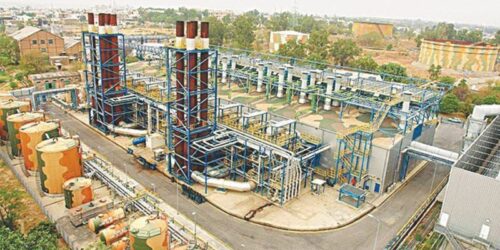The Oil Marketing Companies (OMCs) have decried their ‘unending audits’ ordered by the government as anti-investment and demanded improved security and better vigilance to check the menace of oil smuggling reportedly causing over Rs250 billion per annum revenue loss.
Reacting to a letter from the Ministry of Energy Petroleum Division to 25 OMCs, including refineries, for audit of their 2020-21 accounts, the Oil Marketing Association of Pakistan (OMAP) said the unending audits were sending the wrong signals to potential investors and had already harmed Pakistan’s image. “This must stop forthwith,” OMAP chief executive officer Dr Ilyas Fazil said in a statement.
The OMAP said the letter to 25 companies for audit was interesting as only two out of six refineries had been named, while out of 23 OMCs, 60pc were those with individual market share of less than 0.5pc. This is another in a series of audits of this sector since mid-2020. The Inquiry Commission led by a senior officer of the Federal Investigation Agency had been voluntarily provided all data for conducting the forensic audit.
The association asked the Director General Audit to pause and consider for a moment before spending endless man-hours on this next audit that there was a well-defined checks-and-balance system spearheaded by the Oil and Gas Regulatory Authority (Ogra) where all data currently being sought was provided for the inland freight equalisation margins.
The meetings on IFEM are led by Ogra every month and participated by all stakeholders and through a very comprehensive mechanism, the regulator scrutinised the data which was not only checked but counter-checked threadbare as well as audited by Ogra’s own independent auditors. Therefore, local refinery production and sales to OMCs, imports at the ports, availability at all depots and main installations such as Machhike, are well documented and readily available within this regulator-spearheaded system which has worked very well over the past two decades
Moreover, deemed duty was also being regularly shared by the refining sector with the Petroleum Division as well as audited.
The OMAP, however, conceded that smuggling was a major issue and affecting not only the government revenues but OMCs also. As per the Inquiry Commission Report, the government is losing an estimated Rs250bn per annum and yet this issue was being ignored. “Where is an audit related to smuggling?”, the OMCs questioned, adding that the regulated companies were being constantly targeted even though their data was already available in the official files.
Mr Fazil said the smuggling of petrol and diesel from a neighbouring country has been a festering problem for over a decade. “This results not only in the sale of poor quality product or product which not only does not meet quality specifications applicable to the Pakistani market”.
He said as the petrol Octane value for Pakistani market was set at 90RON while smuggled product from across the border was naphtha of 60-70 RON. Its price for obvious reasons was much below the applicable market price, thereby proliferating the smuggling industry.
Discussions at various forums in the past have recognised this as a serious problem but no lasting solution has resulted due to the security situation, as well as suspected collusion between the smugglers and the local authorities. The Customs Department has been proposing various enforcement measures but not succeeding, the OMAP put on record, adding that smuggling had become the only source of income for the locals involved.
He said the infrastructure of OMCs, including storage depots and hundreds of retail outlets, has continuously suffered from threats due to the security concerns, addressing which is the responsibility of the law enforcement agencies. It has also been recognised that the potential for adding more outlets also exist but this investment was possible only if the influx of smuggled products was stopped and the security situation improved.







